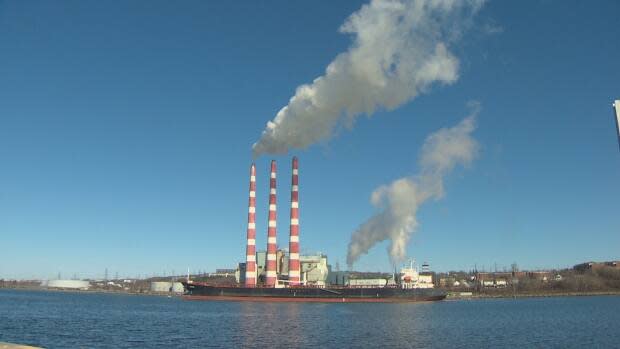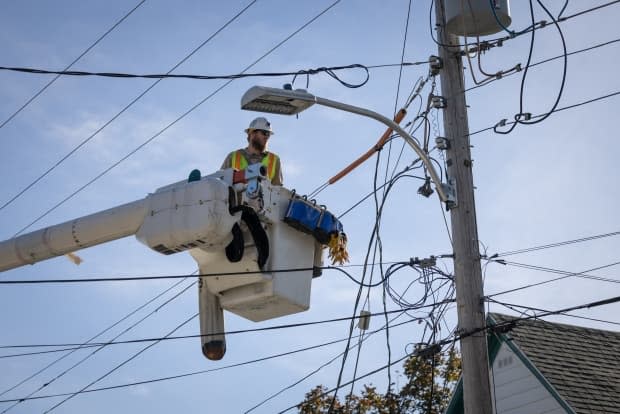Fuel costs mean Nova Scotia Power rates could spike again in the coming years

Nova Scotia Power has provided regulators with the potential impact of skyrocketing fuel costs on residential rates — and the numbers are scary.
Without mitigation measures residential rates could rise by 23 to 25 per cent over the next three years.
The company filed documents Friday in response to a directive from the Nova Scotia Utility and Review Board to estimate the potential impact of rising fuel costs on rates in 2024 and 2025.
The company has not asked for this level of increase and says the scenario does not include any efforts to reduce fuel costs.
NSP seeks 13% increase starting in 2023
The company is seeking an overall 13 per cent hike over the next two years.
The application does not take into account the impact of its escalating fuel bill on rates in 2024 and 2025.
The company intends to start recovering those costs in a separate case next fall.
During public hearings last month the Nova Scotia Utility and Review Board asked for an estimate as part of this case.

It asked for the impact on rates assuming fuel and purchased power costs are consistent with Nova Scotia Power's latest fuel update, released this summer.
Fuel is the coal, oil and natural gas burned to generate electricity at its thermal plants. Purchased power is primarily what it pays for wind power.
The potential impact
Factoring in expected fuel costs adds another 9.6 to 12 per cent to the residential rate increase the utility is currently seeking — depending on how and when fuel costs are recovered.
In one scenario residential rates could rise 10.6 per cent in 2023, 6.3 per cent in January 2024 and 6.6 per cent in January 2025 for an overall increase of 23.5 per cent.
In another scenario, using rate smoothing, rates could increase 6.9 per cent in 2023, 11.6 per cent in 2024 and 7.3 per cent in 2025 — a potential 25.8 per cent increase over three years.
Company spokesperson Jackie Foster says the 25 per cent increase is "a scenario where no fuel cost mitigation efforts were taken."
Not a done deal
"I accept that if the fuel numbers come in as expected that is what the increases would eventually look like," said consumer advocate Bill Mahody, who represents residential customers in regulatory hearings.
Proceedings are still underway and the board has made no decision on how it will treat recovery of the fuel bill.
"The company is not looking to put all of that in rates now, but the reality is customers should be very much aware that the best estimate is that this is where costs are going," Mahody said.

The overall average for all customer classes ranges between 23.9 to 27.7 per cent over the three years.
Ratepayers may need to pony up half a billion dollars
Nova Scotia Power's fuel costs have added a layer of complexity to its general rate application, which is the first in a decade.
As a cost-of-service utility, which is entitled to recover prudently incurred costs, ratepayers are on the hook for the huge spike in the fuel bill facing the company.
Nova Scotia Power updated its fuel forecast in August, revealing the cost of fuel between 2022 and 2024 is $681 million higher than the amount in its rate application submitted earlier this year.
The blow to ratepayers was softened this year by $165 million in greenhouse gas emission relief provided by the province, but it still leaves $516 million in higher fuel costs expected in 2023 and 2024.
On the eve of the hearing, the proposed rate increased from 10 per cent to 11.6 per cent to cover $113 million in higher fuel costs this year. Even then recovery was spread over three years. Fuel costs in upcoming years are unaccounted for in the rate application.
During the rate hearing Nova Scotia Power said it will wait until next fall to submit its plans to recover the fuel bill.
Then there is the federal carbon tax.
If Ottawa rejects Nova Scotia's proposal to collect the tax, it could impose the "federal backstop program," which Nova Scotia Power says would cost $243 million over the next two years.
MORE TOP STORIES


